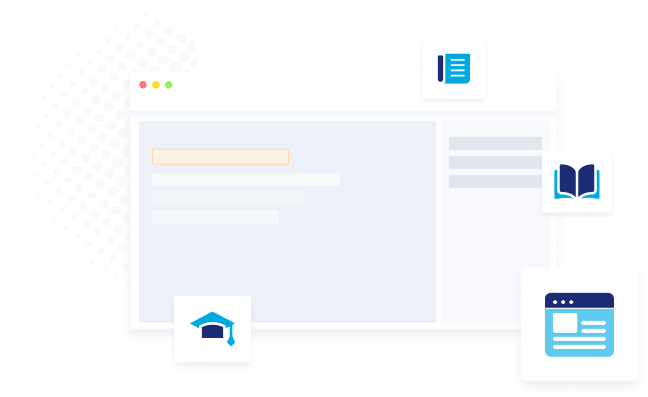All Email Security
Knowledge in One Place
EasyDMARC’s Resource library hosts a massive amount of expert knowledge on email authentication and cybersecurity. We offer research-based data on DMARC adoption, inspire potential clients with success stories, and share news about EasyDMARC and its platform.
Our in-house email security experts share their professional opinion and know-how on DMARC implementation, domain protection, new security standards, and top cybersecurity practices.
Get StartedCheck phishing vulnerabilities and possible issues with DMARC, SPF, DKIM, and BIMI records
Explore the world of cybersecurity and email security. Stay on top of email security news with weekly and monthly recaps, read thought leadership pieces, and improve general cyberawareness. Learn more about DMARC, DKIM, SPF, and BIMI on your protocol adoption journey.
Learn MoreKickstart your email authentication with step-by-step guides and checklists. Dive into our platform and tools and get assistance on every step of your EasyDMARC journey. Lost in a third-party source alignment? Get a simple walk-through with screenshots and straightforward directions.
Learn MoreHere is where our team’s research skills shine. Our data-centric research articles give you a proof for decision-making, white papers and ebooks fuel the hunger for knowledge, and case studies inspire you to take action toward DMARC compliance and better email authentication practices.
Learn MoreEasyDMARC is a dynamic company with an international team. We continuously grow and hit milestones. But what are milestones if we keep them to ourselves?! We’ve chosen to share them with you as we update our product and get better at what we do. Follow the progress here.
Learn More